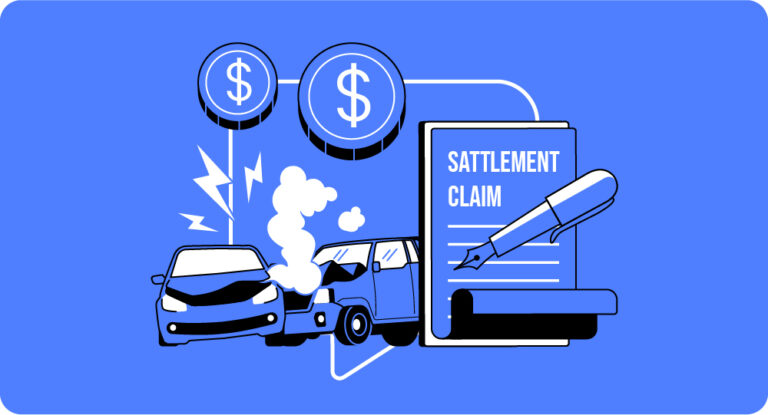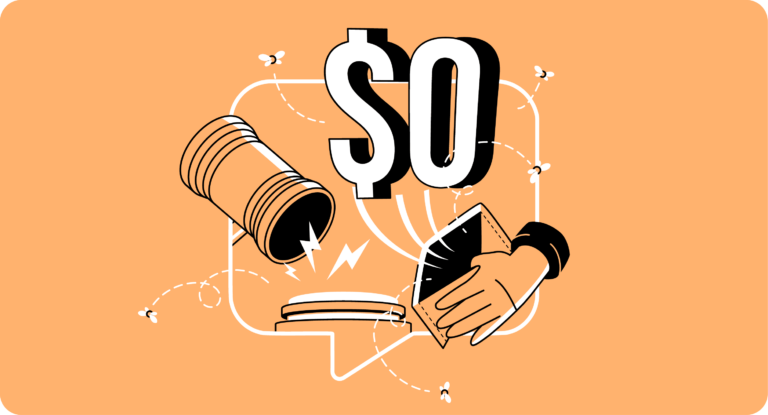Being involved in a car accident can be a stressful experience, especially if you were at fault. Understanding whether you need a lawyer in such situations is crucial.
This guide will help you explore the various factors to consider when deciding if legal assistance is necessary.
Statistics About Car Accidents That Go to Trial
| Statistic | Value |
|---|---|
| Cases that go to trial | 5% |
| Percentage of cases won by plaintiffs | 57% |
| Average trial duration | 3-5 days |
| Median settlement amount before trial | $31,000 |
| Median settlement amount after trial | $52,000 |
| Average legal fees for plaintiffs | $12,000 |
| Average legal fees for defendants | $15,000 |
| Percentage of cases settled out of court | 95% |
Understanding Fault in Car Accidents
Fault in car accidents is a key factor in determining legal and financial responsibilities. Knowing how fault is assigned and its implications can help you make informed decisions.
This section delves into the intricacies of fault in car accidents to provide clarity. Let’s explore the different aspects of fault in car accidents.
Definition of Fault in Car Accidents
Fault refers to the responsibility for causing an accident. It’s determined based on evidence like police reports, witness statements, and traffic laws. Being at fault means you’re accountable for the resulting damages and injuries.
Understanding the exact definition helps in comprehending the broader legal implications. Fault can also affect your insurance claims and legal standing.
Legal Implications of Being at Fault
If you’re found at fault, you may face legal consequences such as fines and liability for damages.
In severe cases, you might even face criminal charges, especially if the accident involved reckless driving or substance abuse. These legal implications can significantly impact your life, leading to long-term consequences.
It’s essential to understand these potential outcomes to prepare adequately. Legal battles can also be costly and time-consuming.
Impact on Insurance Premiums
An at-fault accident can lead to higher insurance premiums.
Insurers consider at-fault accidents a risk factor, which can increase your rates by 20-50%. This financial burden adds to the stress of dealing with an accident.
Understanding this impact helps in planning financially for post-accident scenarios. You may also face difficulties in obtaining affordable insurance coverage in the future.
Common Misconceptions About Fault
Understanding fault in car accidents is not always straightforward. Many people hold misconceptions that can affect how they respond to accidents and their aftermath.
Clarifying these misunderstandings is essential for anyone involved in an accident to better navigate the legal and insurance processes.
- Fault is always clear-cut, but determining fault often requires extensive investigation and evidence.
- Being at fault means no compensation, but in comparative negligence states, you can still recover damages even if partially at fault.
- The police report is infallible, but police reports can contain errors and should be reviewed and corrected.
- Admitting fault at the scene is necessary, but it’s better to provide factual information without admitting fault.
- Insurance companies always decide fault, but their assessments can be contested with legal help.
- Minor accidents don’t need legal advice, but even minor accidents can benefit from legal guidance.
- Fault doesn’t affect premiums immediately, but insurers can adjust rates soon after an at-fault accident.
- The at-fault driver pays all costs, but insurance often covers costs, although policy limits and laws vary.
- Only drivers can be at fault, but pedestrians, cyclists, and other road users can also be at fault.
- Fault determination is the same everywhere, but fault laws vary by state, so it’s important to know your specific jurisdiction’s rules.
Clearing up these misconceptions can help individuals better understand their rights and responsibilities after an accident.
Accurate knowledge of fault can aid in making informed decisions and seeking appropriate legal help when needed.
Importance of Accurate Police Reports
Police reports are crucial in determining fault. They provide an objective account of the accident, including details about the scene and involved parties.
Ensuring accuracy in these reports is vital for fair fault assessment. Discrepancies in these reports can significantly alter the determination of fault. Always review the police report for any errors or missing information.
Role of Witness Statements
Witness statements offer valuable perspectives on the accident. They can support your account or provide different views that might affect fault determination.
Collecting witness information at the scene is essential for a thorough investigation. These statements can corroborate evidence and influence legal outcomes.
Witnesses can sometimes provide crucial details that neither party was aware of.
How Fault Is Determined in Different States
Fault determination varies by state. Some states follow “comparative negligence” rules, while others use “no-fault” systems.
Knowing your state’s laws helps understand how fault will be assigned in your case. This knowledge is vital for strategizing your legal and insurance responses effectively.
Each state’s approach can significantly influence the outcome of your case.
Comparative Negligence Rules
In comparative negligence states, fault is shared between parties. For instance, if you’re 30% at fault and the other driver is 70%, you can still recover damages, but they’ll be reduced by your fault percentage. This system aims to distribute responsibility fairly based on each party’s contribution to the accident.
Comparative negligence encourages fair compensation but also requires clear evidence of each party’s fault.
No-Fault Insurance States
In no-fault insurance states, each party’s insurance covers their own damages, regardless of fault. This system aims to reduce litigation for minor accidents but can complicate fault determination in severe cases.
Understanding the specifics of no-fault insurance is essential for post-accident claims and compensation. No-fault insurance simplifies claims but can limit your ability to sue for damages.
Fault Assessment by Insurance Companies
Insurance companies investigate to determine fault, reviewing police reports and evidence. Their goal is to minimize payouts, which can lead to disputes.
Having a lawyer helps contest unfair fault assessments and ensures your rights are protected. A lawyer can also assist in negotiating fair settlements with the insurance company.
Insurance companies often have experienced adjusters, so professional legal help can level the playing field.
When to Consider Hiring a Lawyer
Deciding whether to hire a lawyer after a car accident, especially when you are at fault, is an important decision. There are several scenarios where legal assistance can be particularly beneficial. Understanding these situations can help you make an informed choice.
Serious Injuries or Fatalities Involved
When an accident results in serious injuries or fatalities, the stakes are much higher.
Legal issues can become complex, with potential criminal charges and significant financial liabilities.
A lawyer can help you understand your legal responsibilities and defend your rights in court. They can also assist in negotiating settlements and ensuring that any compensation claims are handled properly.
Significant Property Damage
If the accident caused substantial damage to vehicles or other property, legal assistance might be necessary.
Insurance companies may dispute the extent of the damage or the costs associated with repairs.
A lawyer can provide a thorough evaluation and work with the insurance company to secure a fair settlement. They can also represent you in court if a lawsuit is filed.
Disputes Over Fault Determination
Accidents often involve disputes over who is at fault. If the other party or their insurance company disputes your account of the incident, having a lawyer can be crucial.
A lawyer can gather evidence, interview witnesses, and build a strong case to support your version of events. This can help in achieving a fair outcome in fault determination.
Involvement of Multiple Parties
When multiple parties are involved in an accident, the legal and insurance issues become more complicated.
Determining fault and negotiating settlements can be challenging without professional help.
A lawyer can manage communications with all involved parties, coordinate with multiple insurance companies, and ensure that your interests are protected throughout the process.
Complex Legal and Insurance Issues
Some accidents lead to intricate legal and insurance issues that are difficult to handle without professional assistance.
For instance, if there are questions about the validity of insurance coverage or disputes over policy terms, a lawyer can provide clarity and guidance.
They can also help resolve these issues efficiently, reducing your stress and ensuring that you receive the coverage you are entitled to.
Potential for Personal Injury Claims
Even if you were at fault, you might still face personal injury claims from other parties involved in the accident.
A lawyer can represent you in these claims, helping to mitigate your liability and negotiate settlements. They can also advise you on the best course of action to take, whether that involves going to court or settling out of court.
Long-Term Impact on Your Record
Being at fault in a car accident can have long-term implications for your driving record and insurance rates.
A lawyer can help minimize these impacts by negotiating with insurance companies and representing you in any legal proceedings. They can also provide advice on how to handle future insurance applications and driving records to mitigate negative effects.
Misleading or Inaccurate Accident Reports
If the accident report contains errors or misleading information, it can affect the determination of fault and subsequent legal proceedings.
A lawyer can help correct these inaccuracies by gathering additional evidence and presenting a compelling case to the relevant authorities. This can significantly improve your chances of a fair outcome.
Pressure from Insurance Companies
Insurance companies often pressure at-fault drivers to settle claims quickly, sometimes for less than they deserve.
A lawyer can help resist this pressure by negotiating on your behalf and ensuring that you receive a fair settlement. They can also advise you on your rights and the best steps to take in dealing with insurance adjusters.
Signs You May Not Be at Fault Despite Initial Determination
Being initially determined at fault in a car accident can be distressing. However, initial fault assessments can sometimes be incorrect.
There are several signs that you may not actually be at fault, and understanding these can help you contest the determination and seek a fair resolution.
- Witness Accounts Differ from the Report
- Evidence Was Overlooked
- Errors in the Police Report
- Contradictory Physical Evidence
- Misinterpretation of Traffic Laws
- Insurance Company Disputes Fault
- Lack of a Thorough Investigation
- Bias in the Report
- New Evidence Comes to Light
- Legal Advice Contradicts Initial Finding
Recognizing these signs can help you understand whether the initial fault determination was accurate.
If you believe you were wrongly blamed, consulting with a lawyer can provide the necessary support to re-evaluate the evidence and challenge the initial findings.
Secure Legal Support After Your Accident
If you find yourself in the difficult position of being at fault in a car accident, it’s important to seek professional legal guidance.
Contact Crockett Law Group, your trusted Santa Ana auto collision attorney, at (800) 900-9393.
They can provide you with the support and representation you need to protect your rights and navigate the complexities of your case.










